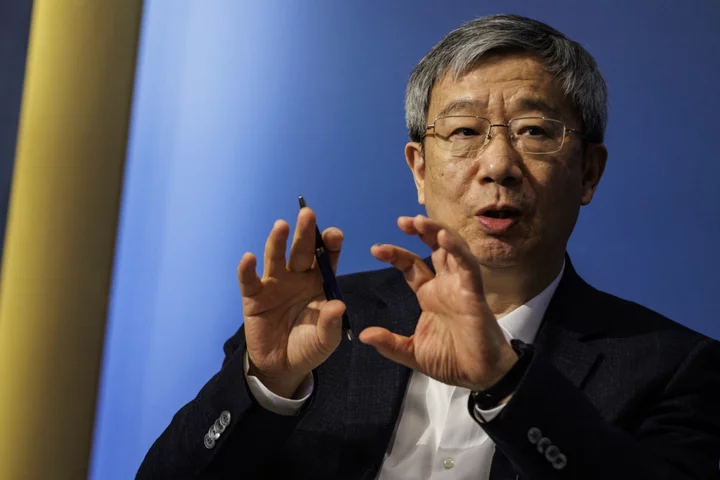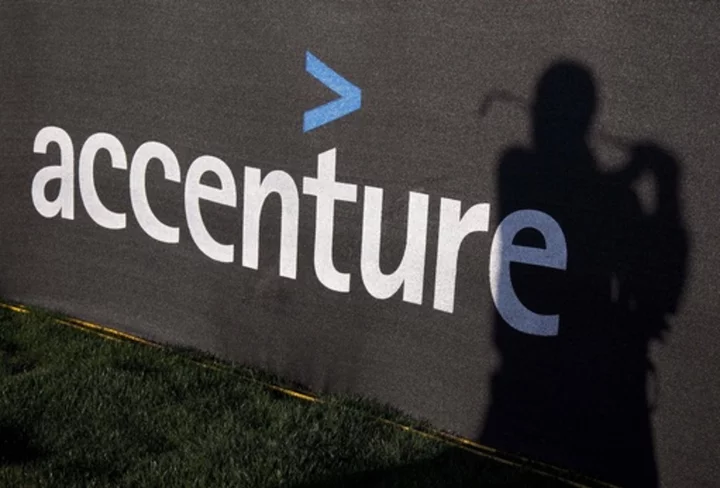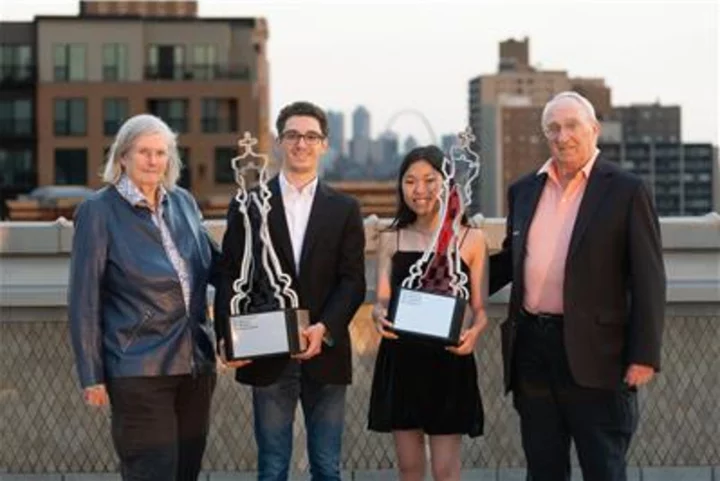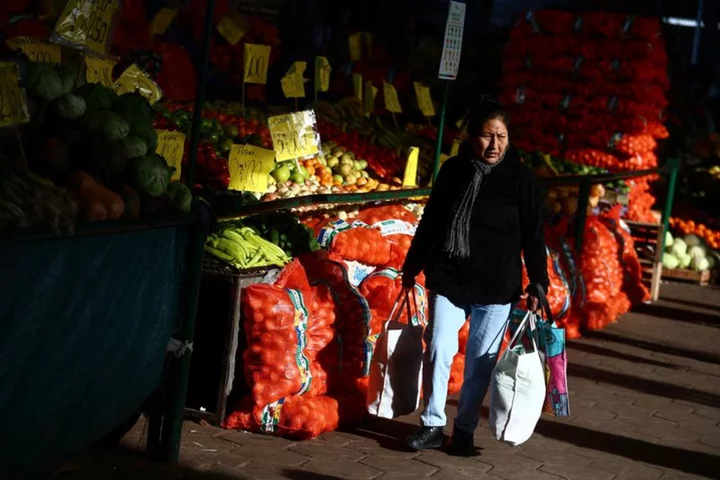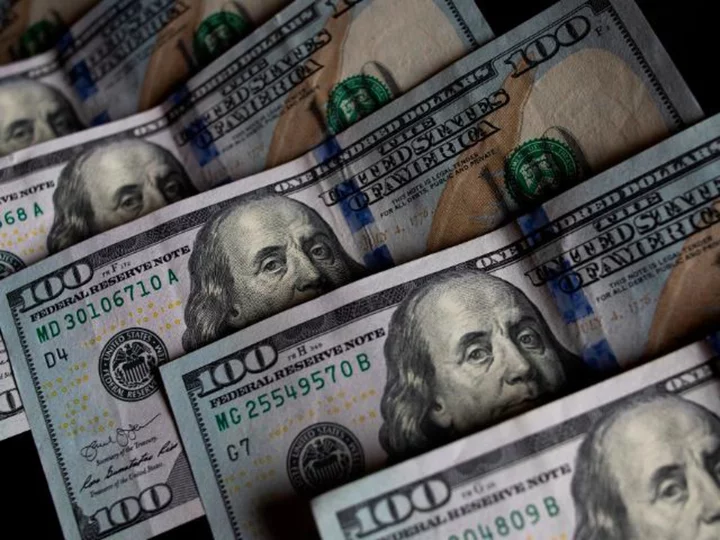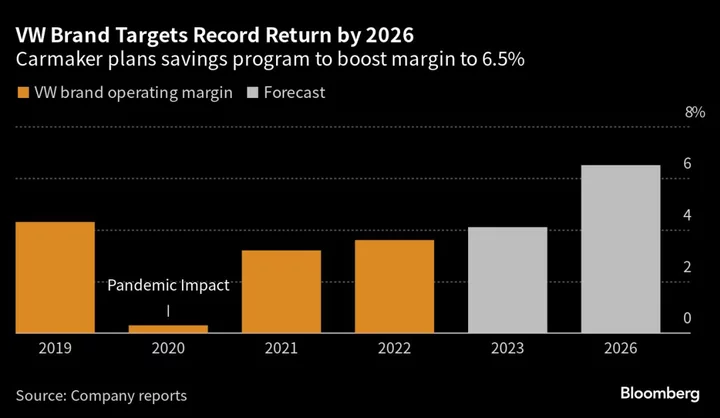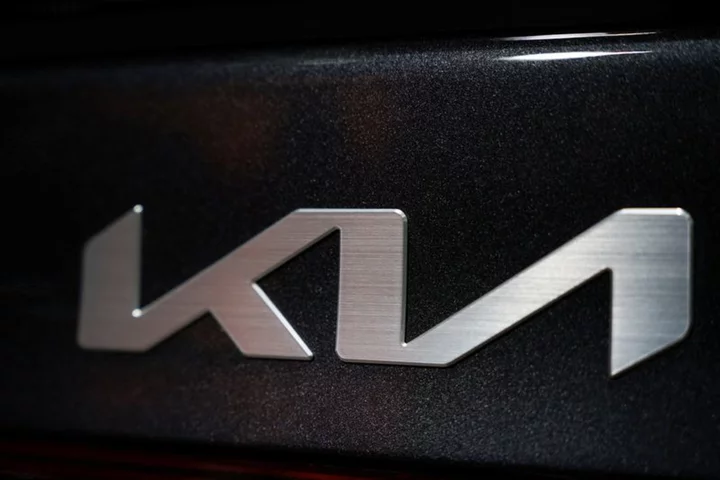Pan Gongsheng is set for a key appearance on the international stage next week, presenting the biggest opportunity for global economic and banking chiefs to rub shoulders with China’s top central banker and gain valuable clues on where he aims to steer policy.
The People’s Bank of China governor is expected to make his way to Marrakech for the International Monetary Fund’s weeklong Annual Meetings, starting Monday. It would be one of his highest-profile trips overseas since succeeding Yi Gang in July.
As the man tasked with guiding the world’s second-largest economy through a slowdown in growth and safeguarding its $60 trillion domestic financial system, Pan is among the conference’s most-anticipated attendees.
The event will bring the technocrat into the orbit of US Treasury Secretary Janet Yellen and IMF Managing Director Kristalina Georgieva, after initial meetings with both in China, as well as other key economic and financial stakeholders.
And with retirement nearing for Finance Minister Liu Kun — who is also expected to attend — Pan will be the main target for those seeking lasting influence in Beijing.
“Pan’s main task will be to build some rapport with global policymakers,” said Gabriel Wildau, managing director at advisory firm Teneo Holdings LLC in New York. Pan will need to do that “while reassuring them that China’s economic weakness is not as severe as many foreign commentators and investors believe,” he added.
Talking Points
Economic leaders at the event in Morocco will likely want Pan’s perspective on China’s economy, as a property crisis and weak confidence among consumers and businesses weigh on growth.
Within weeks of Pan’s appointment, the PBOC delivered the steepest cut to a key loan rate in three years. That move was later followed by additional measures, including a trim to the amount of cash lenders must hold in reserve, in an attempt to juice the economy.
While recent data has shown promising signs of stabilization, some economists have signaled a need for more easing — including further rate cuts before the end of the year.
In a speech Thursday ahead of the Morocco event, Georgieva flagged dangers to the global economy, including from activity in China that’s below expectations. She repeated the Fund’s warning from April that the current pace of global growth remains below the 3.8% average in the two decades before the pandemic, and that medium-term prospects have weakened.
Pan’s language on monetary policy will be closely watched for signs the recent positive data has altered the PBOC’s view of the economy, said Martin Rasmussen, a London-based senior strategist at macro research firm Exante Data.
The Chinese central banker could also face questions about his defense of the yuan amid broader dollar strength, a strategy that could hurt exports but help to stem capital outflows, according to Neo Wang, Evercore ISI’s New York-based managing director for China research.
Although a more significant question could be “whether his big boss has drawn a line in the sand for yuan and USD,” Wang added, alluding to President Xi Jinping.
Debt Discussion
Another topic on Pan’s agenda will be Beijing’s role in debt restructuring negotiations for developing countries, given China is the biggest sovereign lender for many of those economies.
Tension has colored much of the talk around debt relief over the past year, as China and private bond holders have resisted using guidelines established by Western sovereign creditors, represented by the so-called Paris Club.
“China wants to avoid being seen as blocking such restructurings,” said Bert Hofman, former China country director at the World Bank.
Pan, along with finance ministry officials, could propose ways to resolve debt restructurings under the so-called Common Framework, he added, referring to the initiative that has brought Paris Club creditors around the same negotiating table as China.
While Pan’s predecessor defended China’s position earlier this year on the need for multilateral development banks to “make due contributions to debt disposal,” he also stressed Beijing’s desire to participate in such talks.
“China is willing to work with all parties to implement the G-20 common framework for debt disposal,” Yi said during the IMF’s spring meeting in Washington. Shortly before he left office, Chinese creditors struck a precedent-setting deal with the Paris Club on debt relief for Zambia.
That marked the first major victory for agreeing to such relief under the Common Framework. It also created cautious optimism about the potential for deals involving other debt-distressed nations, including Ghana, Ethiopia and Sri Lanka. Beijing’s role in those conversations remains in doubt, with some members on the committee of Sri Lanka’s official creditors pushing to reach a deal without China.
“IMF and international debt issues are very important to China,” said Hans Jorgen Gasemyr, senior researcher at the Norwegian Institute of International Affairs. “But it will have to navigate between what is good for Chinese lenders, what developing countries want and what other traditional big lenders seek to achieve.”
Now and Then
Pan’s performance will likely to draw comparisons with that of his predecessor, who was well-respected internationally and regularly engaged with other central bank chiefs. Like Yi, Pan is a fluent English speaker who has spent time abroad — including as a fellow at the Harvard Kennedy School for a program designed to encourage US-China collaboration.
During a visit to China last month, the IMF’s Georgieva met with several Chinese leaders including Pan, characterizing her talks in general as “productive and substantive.”
“I’m grateful to China for recognizing the role of the IMF at the center of the global financial safety net,” she said.
Pan has built on his international experience in recent months, sitting down with executives at some of the world’s biggest firms — including JPMorgan Chase & Co., HSBC Holdings Plc. and Tesla Inc. — to stress the PBOC’s efforts to stabilize trade and improve the business environment for foreign companies.
Days after being appointed governor, he spoke with representatives from domestic developers and banks to discuss their difficulties and corporate financing needs.
Still, delegates should be realistic about Pan’s influence, said Neil Thomas, a fellow for Chinese politics at the Asia Society Policy Institute’s Center for China Analysis. Unlike central banks in other major economies like the US and Europe, the PBOC isn’t an independent institution. It reports to China’s cabinet, the State Council, which directs economic policy.
“Pan has reasonable influence on the technical side of financial policymaking,” said Thomas. “But decisions about China’s position on international debt restructuring will be made by Xi.”
--With assistance from Rebecca Choong Wilkins, Evelyn Yu and Ramsey Al-Rikabi.
(Corrects reference to trip as Pan’s first major overseas event in headline and body of story published Oct. 5.)

